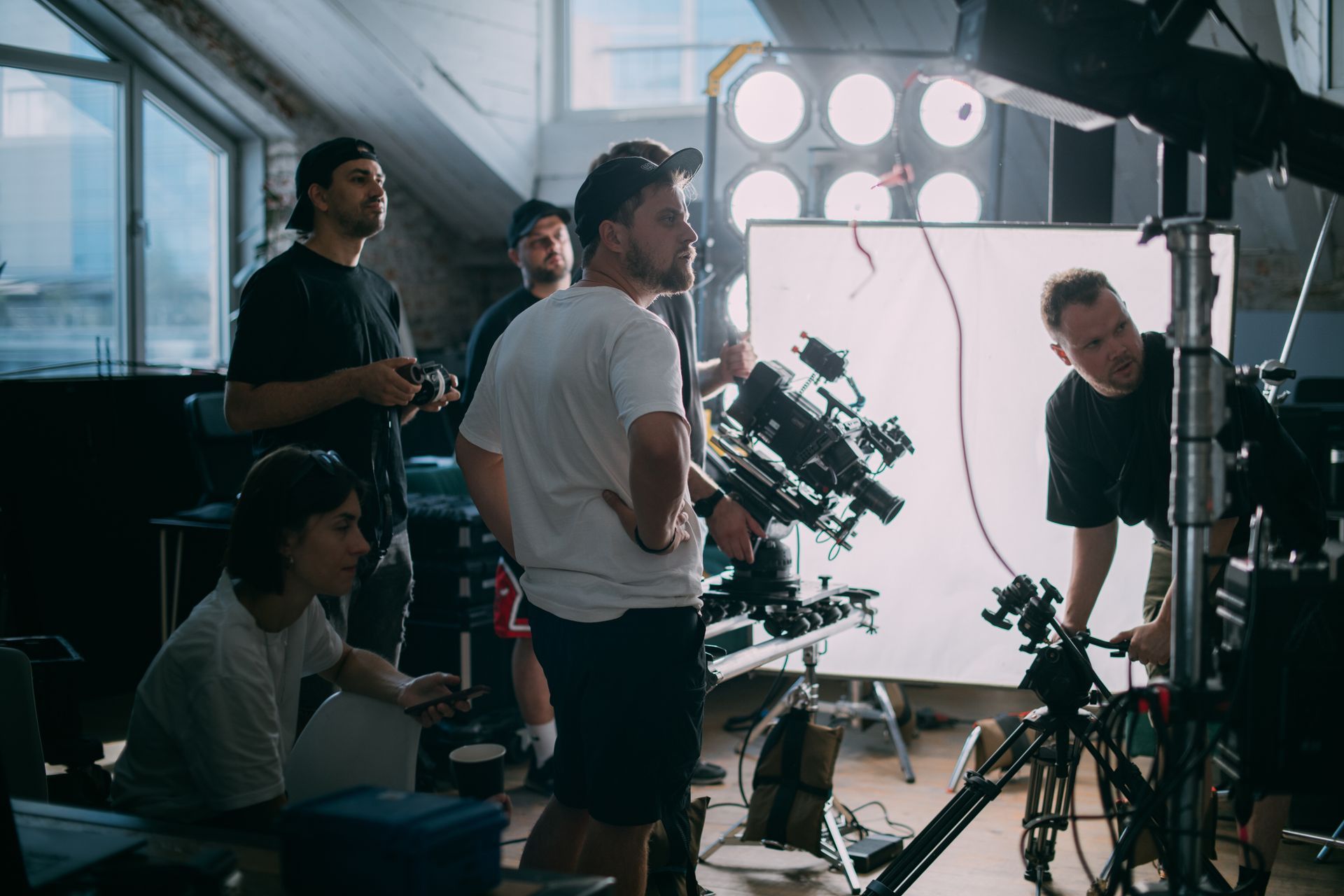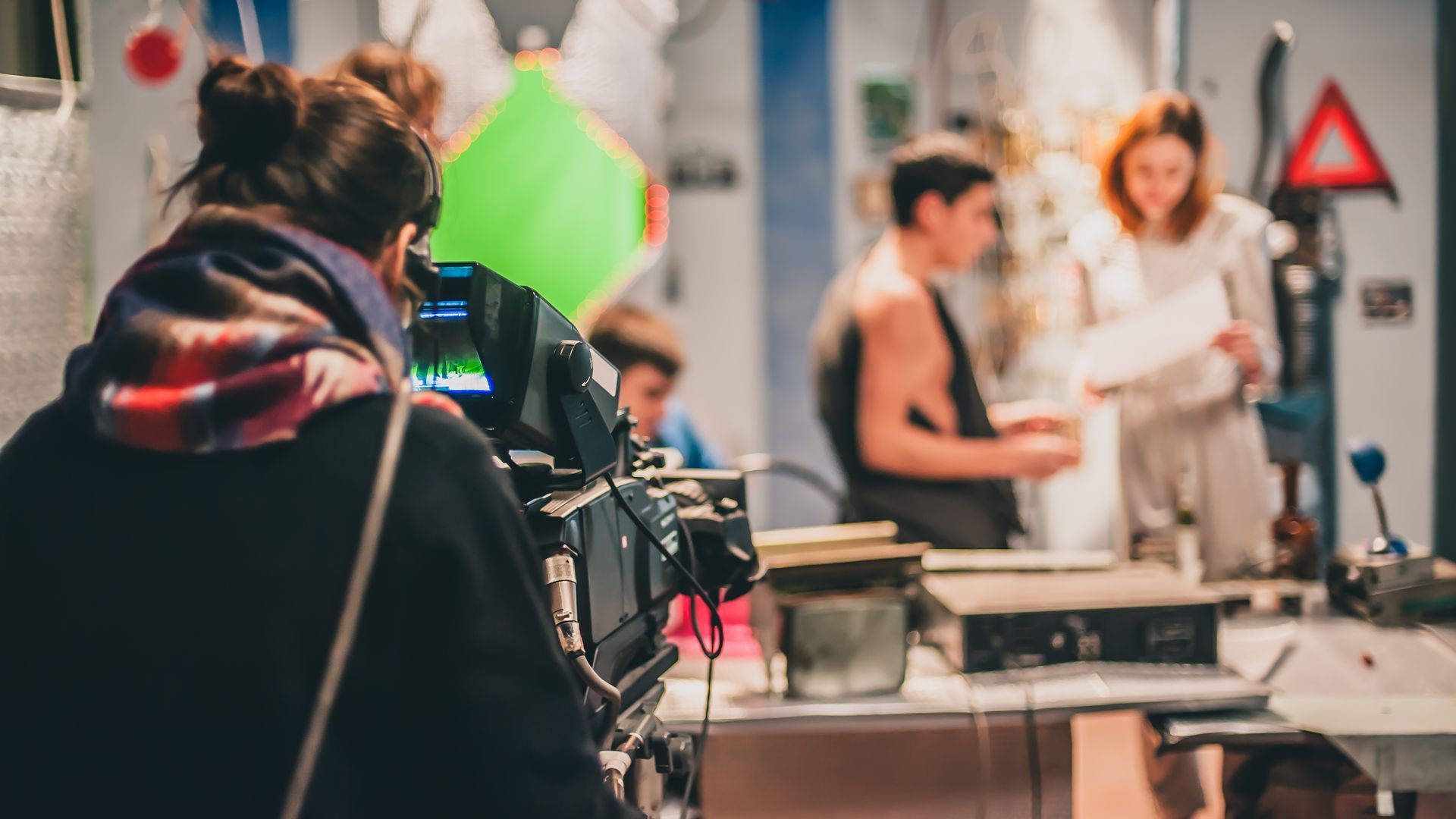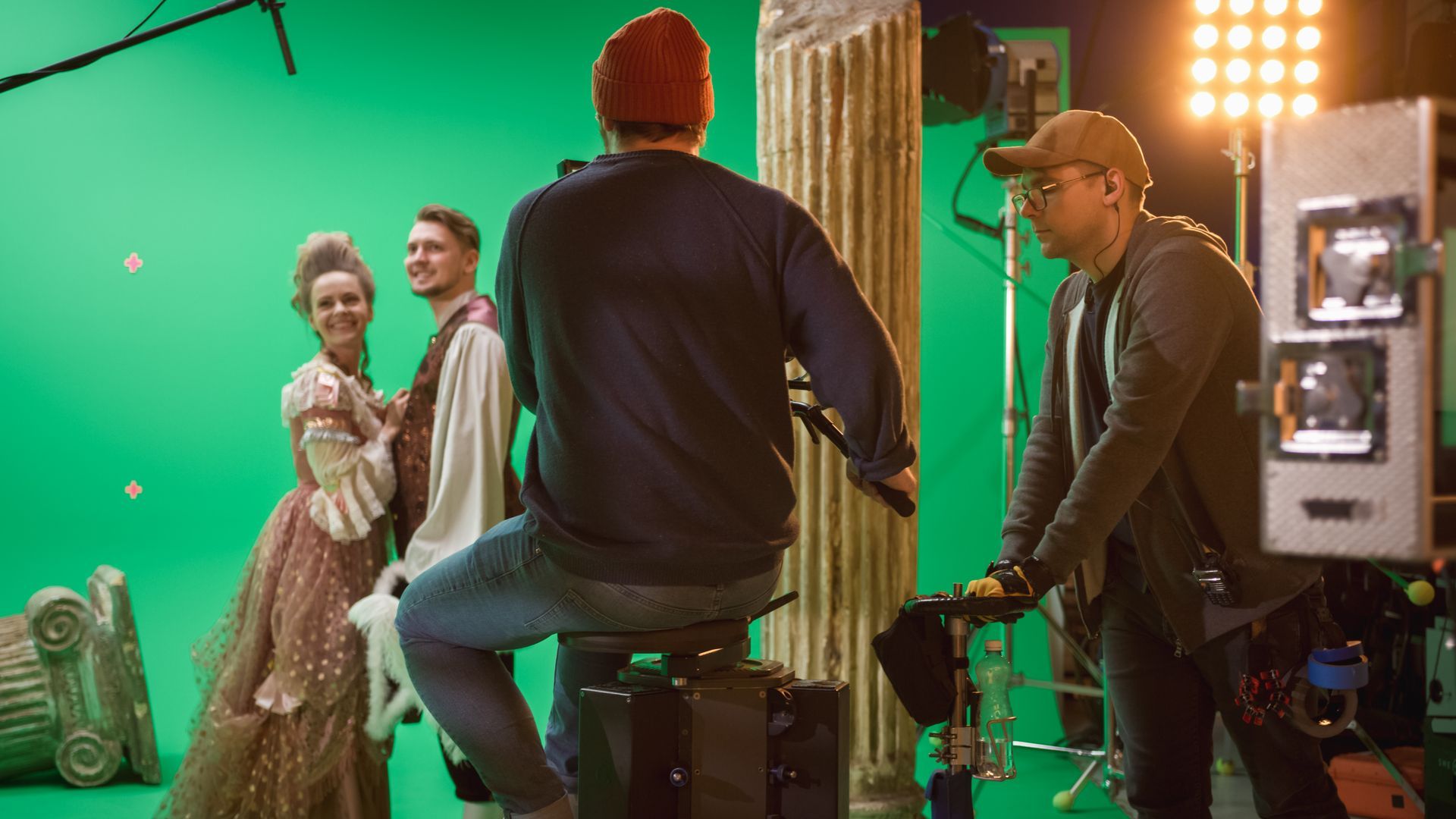What Is Video Production: The Three Stages

When it comes to video production for your film, commercial, concert, sporting event, corporate video or similar type of content, one of the most critical things to understand is that there are a number of different elements at play. Success doesn't just come down to the equipment that you have, the crew that is helping you, or the combined experience of those individuals that are available - it's a combination of all of these things that will help bring your commercial, or corporate video, or other types of visual-based collateral to life.
Pre-Production
Pre-production, as the name suggests, is the part of the process where you and your team members carefully plan out everything that will happen with the actual film, television, or live event shoot moving forward.
Typically, this begins with a script. Based on what the script requires in terms of locations, actors, props, and other materials, you can create a budget and begin to procure those things to make sure that they're ready for the actual production stage.
Obviously, in the case of something like a live event, there will be no "script" in the strictest sense of the term. But pre-production is still necessary to try to plan out the event as much as possible, all so that you know exactly what you need to cover it accurately and capture it for all-time on film or digital video.
There is also something called the “run of show” that lays out when the hosts will talk, along with other factors like when the next act comes on, and more.
There will be no “script,” but there can be a short list and materials that lay out exactly when hosts will be speaking or when certain moments will happen. This is why pre-production is crucial to answering any questions and troubleshooting any potential issues.
This is also the part of the process where crew members will be hired. All of those cameras, lights, and other types of equipment certainly aren't going to operate themselves. They need trained people to utilize them to your full advantage. During pre-production on something like a live event you'll consider how many cameras you need, how many operators are required, and which other crew members should be on-hand to make sure that things go off without a hitch.
Advice for the Planning Stage
By far, one of the biggest elements that can help guarantee success in the planning stage of any production comes down to communication.
Every crew member in every department (lighting, sound, etc.) needs to be fully aware of exactly what is expected to take place. They need to understand the job that they're being asked to do - not just as an individual, but also in terms of how that contributes to the larger whole. People who are hired will specialize in the job they are hired for. They will know what they are doing and what they are expected to do. They can be informed on the particular show, but generally they will know their job because that’s what they are being hired for.
Therefore, pre-production is the part of the filmmaking process where questions are answered and problems are solved. You try to anticipate as best you can what issues might arise on the day of the actual shoot, all so that you can have a potential solution available before you actually need to use it. You make sure that everyone understands exactly what tasks they need to perform.
This is also part of the process where technical considerations will be made. A big example of that would involve a production that is intended for online streaming. Especially if the event in question is to be captured and broadcast live, there must be resources in place that will function perfectly throughout the day. You need cameras that will feed audio and video into a mixing board, which will condense everything into a single signal that is then ready to broadcast live onto the Internet. Having an engineer on-site is also important to make sure that everything is running smoothly, which we make a priority of at TV Pro Gear. Having an engineer on-site is actually a requirement for TV Pro Gear.
All of this is important to tackle now, especially when it comes to getting a better understanding of the overall budget of your production. Remember that absolutely every element - both onscreen and off - has a dollar value attached to it. If you are shooting a narrative scene with two actors in a room with a table and chairs, you need to A) find the appropriate room that meets the intention of the script, B) hire two actors, and C) secure the table, chairs, and other necessary props. All of that costs money, in addition to the money you'll be paying for equipment rentals, crew salaries, etc.
Therefore, you need to go over everything now so that you can get an accurate idea of exactly what needs to be spent in order to bring your vision to life.
There's an old saying that reminds us how "a chain is only as strong as its weakest link." Pre-production is the phase of video production where you reaffirm that each link in the chain is as strong as it can possibly be.
Production
Production is the term used to describe the actual "shooting" part of any film or television shoot. If you're trying to bring a feature film to life, this is when you go through and shoot things scene by scene. If you're concerned about live event shooting, this is when the actual event takes place - the one that you're trying to capture in a way that captivates your potential audience members.
The mechanics of this phase of the process will obviously vary depending on which type of production you're talking about. When it comes to a live event shoot, presumably you're talking about something that will only happen once. Someone will give a speech in public, a band will play an entire set from start to finish, etc. A significant part of what you are attempting to capture is the spontaneity of something that is happening live, therefore you need to make sure that all the resources are in place to help you do precisely that.
Advice for Production
One of the most important things to keep in mind during the production phase of any project is that "Murphy's Law" can and often does apply. That is to say, "whatever can go wrong, will go wrong" - so you need to make sure that you have backup plans in place to avoid any unnecessary delays or compromises of your vision.
In terms of live event production, you may have decided during pre-production that you need five cameras to accurately capture the action - and on the day, one of them is suddenly unavailable. How are you going to adapt and make sure that you still get the footage you need? You should also have an extra camera or two for backup purposes, which is a best practice that TV Pro Gear always follows.
Or, if you're filming a commercial or short film, you may have had your heart set on one particular prop or location that is suddenly no longer accessible. How are you going to make adjustments while still keeping everything in line with what your original intentions were?
These are the types of questions that you need to be prepared to answer. A big part of any successful film production does come down to someone's ability to solve problems, after all.
Beyond that, the actual production phase of any shoot should go relatively smoothly. If you've already put in the necessary preparation - meaning that you've budgeted, you've set your schedule, you have the right people in key positions, and you have all (or most) of the necessary equipment available, you shouldn't run into too many issues. This is all a significant part of the reason why pre-production is so important - it helps to proactively ward off any problems so that when you get to production, you're ready for absolutely anything that happens both in front of and behind the camera.
Post-Production
Post-production is the part of the process where everything coalesces into a finished product. The exception to this is live event filming, as the "event" itself has already happened. If you're streaming something live over the Internet, you don't have much to do in the way of editing, for example. The event has already happened and that footage is already out there. Pre-production was the phase where you made sure you had everything you needed to offer a streaming feed that accurately represented everything that was happening in the moment.
Even though a live event has already happened, there is still editing involved live as a director or technical director switches from one camera to another. Likewise, sometimes an event is filmed live but is not broadcast live. That footage will need to be cleaned up, color corrected, etc. Last year, TV Pro Gear filmed Nora Jones on top of the Empire State Building live but that footage was color corrected before it was released.
When it comes to something like a commercial shoot, a short film, a narrative feature, or something of similar nature, this is the phase where a lot of the "heavy lifting" is performed. All of that footage that you captured needs to be assembled into something that again accurately reflects your original vision. If you shoot multiple takes of a single scene, you'll need to watch each one to decide which is best and which will have the biggest impact with your audience. If audio wasn't captured exactly as you'd hoped, you'll need to bring actors back for ADR (additional dialog recording).
Things like color correction also happen during post-production - you want to make sure that all shots within a single scene look consistent in terms of color depth and temperature.
For anything other than an event that has been live streamed over the Internet, post-production is also the phase where you'll decide what format the finished product will take. Once all the footage is assembled and has been edited to your liking, you will decide what types of digital files are necessary, whether your content will be making its debut on physical media, etc. All of this needs to be carefully considered so that your target audience can view your content in precisely the way that you originally intended. Some of these decisions need to be made ahead of time, like what format you’re shooting in, so that you know what needs to happen in camera before shooting.
Advice For Post-Production
There's an industry saying that reaffirms the idea that films are essentially written three times - once as a script, once during production, and again during post-production. That is to say, with a bit of effort and creativity, you can help your finished product really "come alive" during post-production. Even if you had to make certain compromises while shooting, it's still critical for you to keep this in mind. Post-production isn't merely a technical phase - it's absolutely as creatively-driven as the other two.
All of this ultimately underlines the importance of hiring the right production company partner to handle the three stages of video production and absolutely every element in between. There are a lot of different factors that must be considered to guarantee a successful shoot - which means that there is unfortunately a lot that can go wrong. Equipment must be rented. Crew members who are ideal for their intended positions need to be hired. Locations and/or studio space needs to be secured. The list goes on and on.
Rather than spending so much time worrying about the logistical elements of the shoot, you instead always have the option of hiring a team of professionals to take up that burden on your behalf.
In the end, everything outlined above is why the answer to the question "what is video production?" is admittedly complicated. There are various stages necessary to see a concept through from the initial idea phase to a polished, finished product. But they're all invaluable for various reasons and once you understand that, you'll begin to see why video production is so essential in the first place.
At TV Pro Gear, we offer a wide range of video production services that are designed to meet your needs. Regardless of what your production budget is or what your goals happen to be, we have the capabilities to meet your needs and exceed your expectations - precisely the way it should be. We also offer access to various Flypacks that come complete with all the resources you need to pull off a high quality production of your own, all while offering the insight and expertise you need to bring your vision into reality in the most cost-effective way possible.
If you'd like to find out more information about the various stages of video production and how they can help your business, or if you'd just like to discuss your own situation with someone in a bit more specificity, please don't delay -
contact us today.
Recent Posts
©TV Pro Gear 2022. All Rights Reserved. Privacy Policy





